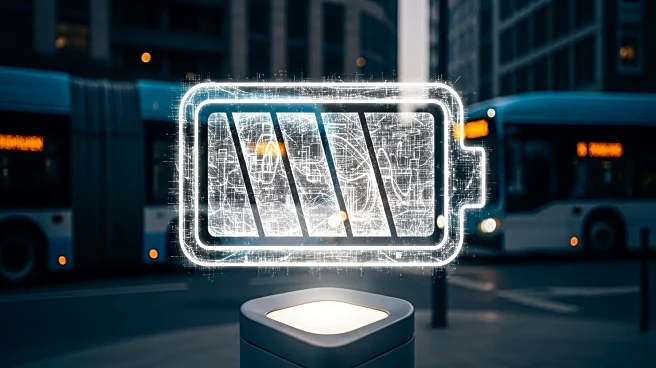What is the story about?
What's Happening?
Bayreuth, Germany, initially planned to decarbonize its bus fleet with hydrogen fuel cell vehicles but reversed its decision in favor of battery-electric buses. The city's neutral techno-economic assessment revealed that battery-electric buses are more cost-effective and efficient than hydrogen alternatives. The decision reflects broader trends in fleet transitions, where direct electrification is favored over hydrogen due to lower costs and better performance.
Why It's Important?
Bayreuth's decision underscores the economic challenges associated with hydrogen as a transport solution. Hydrogen systems involve high costs and energy losses, making them less competitive than battery-electric options. The shift highlights the importance of objective assessments in guiding sustainable transport decisions. It also reflects a growing recognition of the limitations of hydrogen in local transport, despite its potential in industrial applications.
What's Next?
Bayreuth plans to continue investing in battery-electric buses, leveraging their cost-effectiveness and reliability. The city's decision may influence other municipalities to reconsider hydrogen projects and prioritize electrification. As technology advances, the focus on battery-electric solutions is likely to grow, driven by economic and environmental benefits.
Beyond the Headlines
The story illustrates the importance of evidence-based decision-making in sustainable transport planning. It highlights the need for cities to balance innovation with practicality, ensuring that investments align with long-term economic and environmental goals. Bayreuth's experience serves as a cautionary tale for other cities considering hydrogen projects.


















